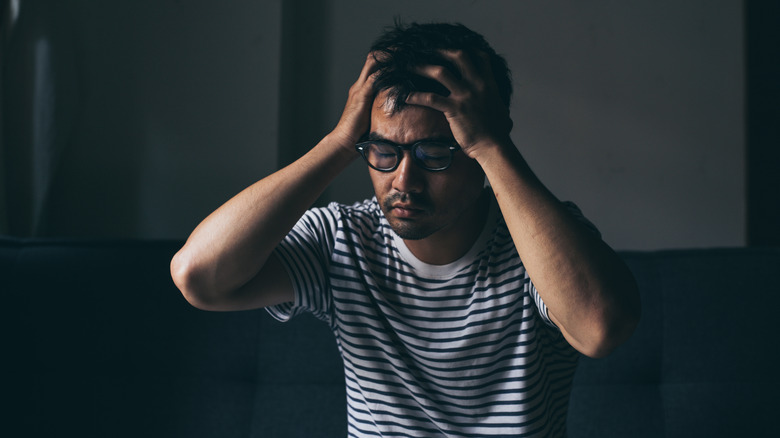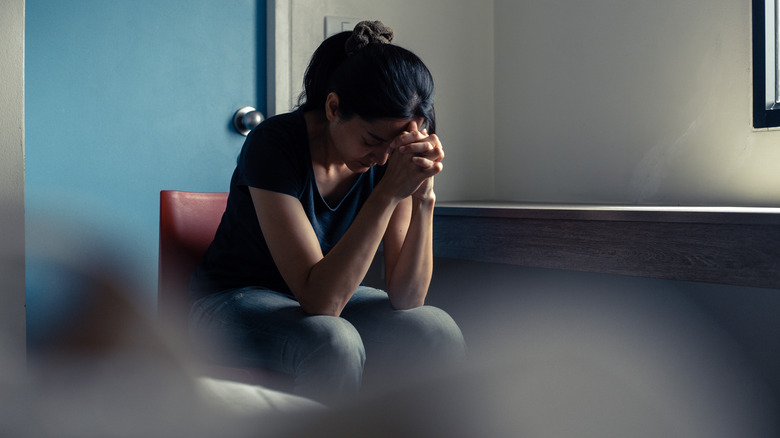What Does It Feel Like When You Have A Panic Attack?
If you've ever known someone who's had a panic attack, you might have heard how terrifying and consuming it can feel. But it can be hard to understand the intensity if it's something you've never experienced. So what does a panic attack really feel like?
Panic attacks can come on without warning and can reach their peak in just a few minutes (via Healthline). They can cause both emotional and physical symptoms, which might be confusing, as they can be mistaken for a heart attack or stroke. A panic attack is generally an abrupt, overwhelming feeling of anxiety and fear — but it can be different for everyone.
Panic attacks can have a number of signs and symptoms. Common ones include heart palpitations, chest pain, shortness of breath, sweating, nausea, numbness, and feeling like you're losing control (via Anxiety and Depression Association of America). Panic attacks are different from anxiety attacks in a few ways. Notably, they become most intense within 10 minutes and then diminish.
The real fear of a panic attack
Sometimes panic attacks have a trigger, like encountering conflict, public speaking, or a situation that reminds you of stressors in your life (via Healthline). They can cause intense fear, even if you're not in any actual danger, according to Mayo Clinic. While you can't die from a panic attack, it can often feel like it. You may be more likely to experience panic attacks if family members have a history of them, you've experienced trauma, you're going through a major life change, you smoke or consume caffeine excessively, or you've experienced childhood abuse.
While it's common to experience one or two panic attacks in your lifetime, sometimes they become recurrent or frequent (via National Institute of Mental Health). This could mean that you have a panic disorder, where you experience multiple attacks per year or even per day. This mental health condition typically starts in late adolescence or early adulthood.
Once you experience one attack, you might feel terrified about experiencing another (via Mayo Clinic). Contact a health care provider and seek treatment as soon as possible. If possible, stick to your treatment plan and get physical movement regularly.


